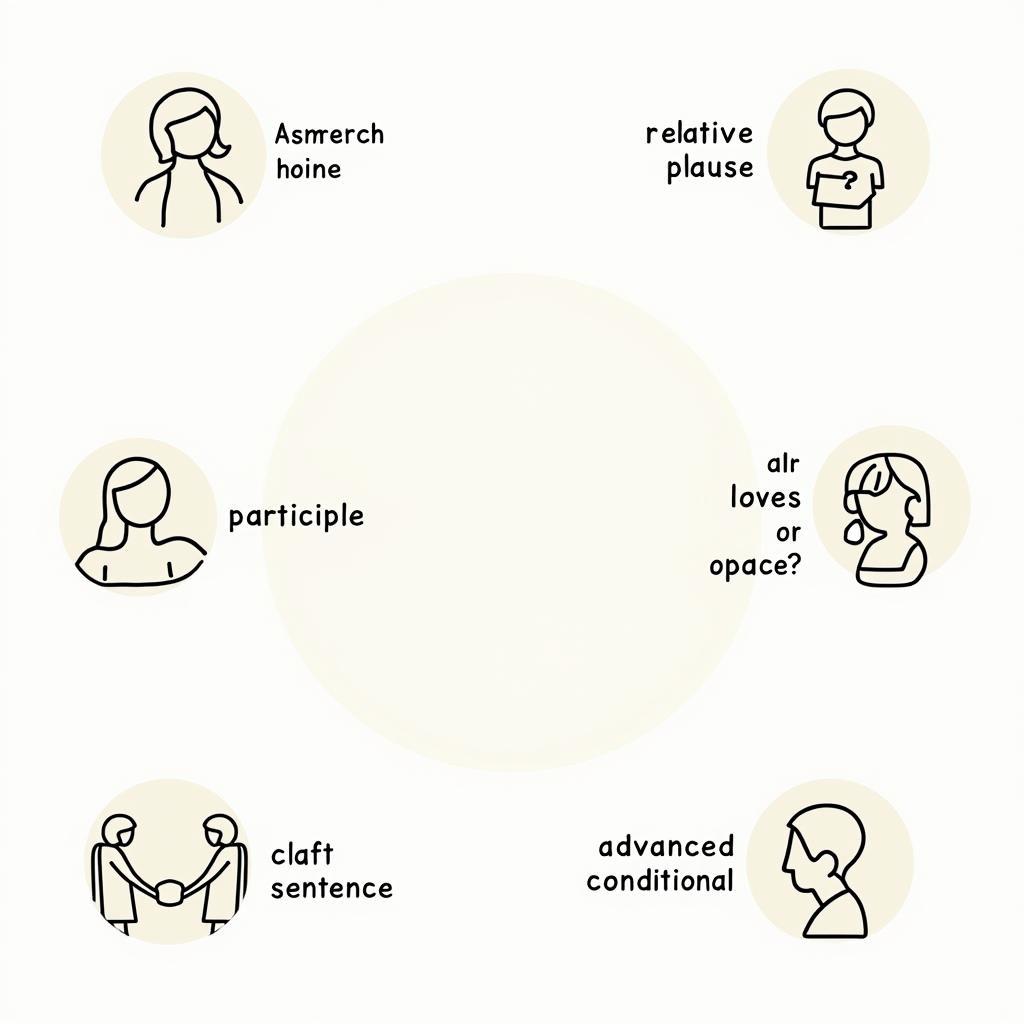Mở bài
Chủ đề Role Of Governments In Promoting Mental Health Services ngày càng “hot” trong IELTS Writing Task 2 vì gắn liền với y tế công, phúc lợi xã hội và phòng ngừa bệnh tật. Trong 5 năm gần đây, đề liên quan đến vai trò chính phủ trong chăm sóc sức khỏe, phòng bệnh hơn chữa bệnh, và chi tiêu y tế công xuất hiện thường xuyên ở cả hình thức Paper-based và Computer-delivered. Bài viết này giúp bạn: nắm chắc 3 đề thi tiêu biểu, phân tích yêu cầu đề, đọc 3 bài mẫu Band 5-6, 6.5-7 và 8-9 kèm chấm điểm chi tiết, đồng thời “bỏ túi” từ vựng, cấu trúc ăn điểm và checklist tự kiểm tra trước/giữa/sau khi viết.
Một số đề Task 2 đã được xác minh trên các nguồn uy tín:
- “Prevention is better than cure. Governments should spend more money on preventive health care than on treatment. To what extent do you agree or disagree?” (xuất hiện trên IELTS Liz và IELTS-Blog trong mục đề luyện, ý tưởng và dàn bài)
- “Healthcare should be free for everyone. To what extent do you agree or disagree?” (đề luyện phổ biến trên British Council LearnEnglish và nhiều nguồn ôn tập chính thống)
- “Some people believe governments should pass laws to encourage healthy lifestyles, while others think individuals should take responsibility. Discuss both views and give your own opinion.” (từng được tổng hợp trên IELTS-Blog/IELTS Liz trong mục câu hỏi mẫu)
Bài viết chọn một đề chuyên sâu sát với trọng tâm mental health để bạn luyện kỹ năng lập luận, phát triển ý mạch lạc và tối ưu từ vựng học thuật.
[internal_link: Hướng dẫn hoàn chỉnh IELTS Writing Task 2 opinion essay]
1. Đề Writing Part 2
Some people argue that governments should take the lead in promoting mental health services, while others believe this responsibility lies mainly with individuals and communities. Discuss both views and give your own opinion.
Dịch đề:
Một số người cho rằng chính phủ nên đóng vai trò dẫn dắt trong việc thúc đẩy các dịch vụ sức khỏe tâm thần, trong khi những người khác tin rằng trách nhiệm này chủ yếu thuộc về cá nhân và cộng đồng. Hãy thảo luận cả hai quan điểm và nêu ý kiến của bạn.
Phân tích đề bài:
- Dạng câu hỏi: Discuss both views + Give your own opinion. Bạn phải: (1) trình bày cân bằng hai quan điểm, (2) nêu rõ lập trường của mình và (3) hỗ trợ bằng lý lẽ và ví dụ.
- Thuật ngữ quan trọng: “take the lead” (đóng vai trò dẫn dắt), “promoting mental health services” (thúc đẩy dịch vụ sức khỏe tâm thần), “individuals and communities” (cá nhân và cộng đồng).
- Lỗi thường gặp:
- Chỉ viết về một phía, bỏ quên quan điểm còn lại.
- Nhầm “mental health” với “physical health”, ví dụ minh họa không bám trục “dịch vụ” (services) như tư vấn, hỗ trợ khẩn cấp, can thiệp sớm.
- Thiếu quan điểm cá nhân rõ ràng, hoặc đưa opinion rải rác, không nhất quán.
- Cách tiếp cận chiến lược:
- Mở bài: paraphrase + nêu sẽ thảo luận cả hai và đưa ra opinion.
- Thân bài 1: Lập luận vì sao chính phủ cần dẫn dắt (nguồn lực, chính sách, bình đẳng tiếp cận).
- Thân bài 2: Vai trò cá nhân, gia đình, cộng đồng (giảm kỳ thị, hỗ trợ ngang hàng, văn hóa địa phương).
- Kết bài: Opinion thiên về mô hình phối hợp (government-led but community-embedded) để thuyết phục.
 Chính phủ và role of governments in promoting mental health services trong IELTS
Chính phủ và role of governments in promoting mental health services trong IELTS
2. Bài mẫu Band 8-9 về role of governments in promoting mental health services
Bài Band 8-9 cần: lập luận sâu, ví dụ thuyết phục, từ vựng chính xác, mạch lạc cao, kiểm soát câu phức tự nhiên.
Bài luận (khoảng 300 từ)
While communities and individuals are indispensable in nurturing psychological well-being, it is the government that must take the strategic lead in promoting mental health services. This is primarily because only the state can align funding, legislation, and nationwide infrastructure to ensure equitable access and early intervention.
On the one hand, public authorities possess unique levers that grassroots actors simply do not. Targeted subsidies can expand counselling in under-served districts; parity laws can mandate insurers to cover mental health on equal terms with physical conditions; and school-based programmes can institutionalise prevention through trained counsellors and evidence-informed curricula. Without this policy scaffolding, provision remains patchy, and help often arrives too late.
On the other hand, top-down measures are effective only when embedded in bottom-up support. Families, peers, and local leaders reduce stigma, notice warning signs, and normalise help-seeking. Community-led initiatives—peer support circles, culturally sensitive outreach, or digital helplines moderated by volunteers—can meet people where they are. Nevertheless, these efforts require stable funding, training standards, and data-sharing protocols, which again depend on governmental stewardship.
In my view, the most credible model is government-led but community-delivered. The state sets the guardrails—financing tele-mental health, building referral pathways from schools and primary care, and measuring outcomes—while communities adapt services to local needs. Such synergy lowers barriers for vulnerable groups, from rural youths to migrant workers, and shifts the system from crisis response to prevention. Ultimately, when governments lead with coherent policy and invest predictably, they empower citizens and civil society to sustain compassionate, high-quality mental health support.
Phân tích Band điểm
| Tiêu chí | Band | Nhận xét |
|---|---|---|
| Task Response (Hoàn thành yêu cầu) | 8.5 | Trả lời đầy đủ cả hai quan điểm, nêu opinion rõ ràng “government-led but community-delivered”. Lập luận sâu và ví dụ chính sách cụ thể (parity laws, school-based programmes). |
| Coherence & Cohesion (Mạch lạc & Liên kết) | 8.5 | Bố cục rõ: mở–hai thân–kết; mỗi đoạn có câu chủ đề và phát triển logic. Dùng thiết bị liên kết tinh tế “on the one hand/on the other hand”, “nevertheless”, “ultimately” không lạm dụng. |
| Lexical Resource (Từ vựng) | 8.5 | Từ vựng học thuật rộng và chính xác: parity laws, early intervention, policy scaffolding, referral pathways. Collocations tự nhiên, không lặp từ thô cứng. |
| Grammatical Range & Accuracy (Ngữ pháp) | 8.0 | Câu phức linh hoạt, mệnh đề quan hệ, cụm phân từ dùng chính xác. Lỗi ngữ pháp không đáng kể; kiểm soát dấu phẩy và song song tốt. |
Các yếu tố giúp bài này được chấm điểm cao
- Quan điểm “government-led but community-delivered” vừa rõ ràng vừa cân bằng, tạo luận điểm trung tâm mạnh.
- Ví dụ cụ thể cấp chính sách (parity laws, school counsellors, tele-mental health) tăng tính thuyết phục.
- Triển khai “trên–dưới” có tương tác (top-down vs bottom-up) giúp logic mạch lạc.
- Collocations chính xác: “equitable access”, “early intervention”, “data-sharing protocols”.
- Câu chủ đề chặt chẽ, câu kết đoạn nhấn thông điệp.
- Từ nối cân đối, không lạm dụng, chuyển ý mượt.
- Cấu trúc câu đa dạng (mệnh đề nhún, cụm phân từ, đảo trật tự nhẹ).
3. Bài mẫu Band 6.5-7 về role of governments in promoting mental health services
Đặc điểm Band 6.5-7: ý rõ, lập luận đủ, từ vựng khá, đôi chỗ lặp/khái quát, một vài lỗi nhẹ về lựa chọn từ và ngữ pháp.
Bài luận (khoảng 265 từ)
Many people think the government should be mainly responsible for mental health services, but others say individuals and communities can do this better. In reality, both sides have logic, yet I believe the state needs to coordinate the system so that support does not depend on luck.
Governments can shape a fair framework. They can fund hotlines, train school counsellors, and include therapy in public insurance. When these actions happen nationwide, people in rural or poor areas have a better chance to get help. Clear guidelines and standards also reduce inconsistent quality, which is a big problem when services are provided by many small organisations.
However, local communities and families understand culture, language, and stigma in a way the state cannot. Community groups can organise peer support, churches or youth clubs can host workshops, and neighbours may notice early signs of depression. Because trust is local, people may reach out earlier, which prevents crises and saves costs later.
In my opinion, the best solution is a partnership. The government should set priorities and pay for essential services, while communities adapt delivery to real needs. This way, there is both coherence from the top and acceptance at the grassroots. If either side works alone, the results are weaker: government-only plans risk being bureaucratic, and community-only efforts can be uneven and fragile.
Overall, mental health deserves the same seriousness as physical health. With shared responsibility but state coordination, more people will get timely, affordable support.
Phân tích Band điểm
| Tiêu chí | Band | Nhận xét |
|---|---|---|
| Task Response (Hoàn thành yêu cầu) | 7.0 | Trả lời đúng yêu cầu, có opinion rõ. Ví dụ tương đối cụ thể nhưng chưa thật sắc bén như bài 8-9. |
| Coherence & Cohesion (Mạch lạc & Liên kết) | 7.0 | Bố cục rõ; dùng từ nối mạch lạc. Một số chỗ lặp ý “partnership/coordination” và diễn đạt còn khái quát. |
| Lexical Resource (Từ vựng) | 6.5 | Từ vựng khá, collocations ổn: “clear guidelines”, “timely, affordable support”. Thiếu vài cụm chuyên sâu; có lặp từ “communities/government”. |
| Grammatical Range & Accuracy (Ngữ pháp) | 7.0 | Câu phức dùng đúng; lỗi nhỏ về song song và mạo từ không đáng kể. Độ chính xác nhìn chung tốt. |
So sánh với bài Band 8-9
- Bài 8-9 có ví dụ chính sách chuyên sâu (parity laws, referral pathways); bài 6.5-7 dừng ở mức “fund hotlines, train counsellors”.
- Band 8-9 sở hữu luận điểm trung tâm sắc “government-led but community-delivered” và phát triển hệ thống; Band 6.5-7 nêu “partnership” nhưng chưa phân tích cơ chế phối hợp cụ thể.
- Vốn từ ở Band 8-9 học thuật và chính xác hơn; Band 6.5-7 có xu hướng lặp và trung tính.
4. Bài mẫu Band 5-6 về role of governments in promoting mental health services
Đặc điểm Band 5-6: ý còn chung chung, ví dụ mờ, nhiều lỗi mạo từ/giới từ/thì, từ nối đơn điệu, câu dài dễ lệch chuẩn.
Bài luận (khoảng 255 từ)
Some people say government should do almost everything for mental health, but others think communities and persons can handle it. I think both are important, but the plan is not clear and sometimes it is confused.
Firstly, the government can give money to hospitals and make campaign about depression, which is good. But many times it is too slowly and full of bureaucracy, so people do not get help on time. Also, the mental health should be free for all citizens because many poor cannot pay. If it is free, everyone will use, and this solve the problem.
Secondly, communities know people better. A neighbour or a relative can see if someone is sad and help them to talk, which is more comfortable than official service. However, community groups are not professional and sometimes give wrong advices, so the quality is different in each place.
In conclusion, government must be responsible, but not do everything. People should take responsibility of their own health and also help others. If all people try their best, mental health will improve. This is the most practical solution in nowadays society.
Phân tích Band điểm
| Tiêu chí | Band | Nhận xét |
|---|---|---|
| Task Response (Hoàn thành yêu cầu) | 5.5 | Có đề cập hai phía và opinion, nhưng lập luận nông, ví dụ thiếu thuyết phục (“free for all will solve the problem”). |
| Coherence & Cohesion (Mạch lạc & Liên kết) | 5.5 | Liên kết đơn giản; một số câu dài/thiếu phát triển. Ý lặp, chuyển đoạn chưa mượt. |
| Lexical Resource (Từ vựng) | 5.5 | Từ vựng cơ bản, nhiều collocation sai/thiếu tự nhiên (“give wrong advices”, “do almost everything”). Lặp từ. |
| Grammatical Range & Accuracy (Ngữ pháp) | 5.5 | Lỗi mạo từ, trạng từ-tính từ, số ít/số nhiều, giới từ. Cấu trúc câu hạn chế. |
Những lỗi sai của bài – phân tích & giải thích
| Lỗi sai | Loại lỗi | Sửa lại | Giải thích |
|---|---|---|---|
| confused | Từ vựng (tính từ không hợp ngữ cảnh) | unclear/ill-defined | “Confused” mô tả người; nên dùng “unclear/ill-defined plan”. |
| too slowly | Trạng từ/tính từ | too slow | Sau “is” cần tính từ “slow”, không phải trạng từ “slowly”. |
| full of bureaucracy | Collocation | overly bureaucratic | Dùng tính từ học thuật tự nhiên hơn. |
| the mental health should be free | Mạo từ + danh từ không đếm được | mental health services should be free | Cần danh từ đếm được “services”; bỏ “the”. |
| give wrong advices | Danh từ không đếm được | give wrong advice | “Advice” là không đếm được. |
| take responsibility of | Giới từ | take responsibility for | Collocation đúng là “responsibility for”. |
| in nowadays society | Cụm từ sai | nowadays / in today’s society | “Nowadays” không dùng với “in”; hoặc dùng “in today’s society”. |
| do almost everything | Diễn đạt mơ hồ | take the lead/set the framework | Cụm học thuật rõ ràng hơn, tránh mơ hồ. |
Cách Cải Thiện Từ Band 6 Lên Band 7
- Rà soát mạo từ (a/an/the) và danh từ không đếm được: advice, information, evidence, research.
- Thay cụm mơ hồ bằng collocations học thuật: provide equitable access, implement prevention programmes, reduce stigma.
- Mở rộng ví dụ: nêu chính sách cụ thể (school counsellors, parity laws), mô tả cơ chế tác động.
- Đa dạng hóa từ nối: not only… but also, nevertheless, by contrast, as a result.
- Nâng cấp ngữ pháp: dùng mệnh đề quan hệ, cụm phân từ, câu điều kiện loại 2/3 để giả định kết quả chính sách.
5. Từ vựng quan trọng cần nhớ
| Từ/Cụm từ | Loại từ | Phiên âm | Nghĩa VN | Ví dụ (EN) và Collocations |
|---|---|---|---|---|
| mental health services | n. | /ˈmɛntl hɛlθ ˈsɜːvɪsɪz/ | dịch vụ sức khỏe tâm thần | Governments must expand mental health services in rural areas. |
| early intervention | n. | /ˈɜːli ˌɪntəˈvɛnʃn/ | can thiệp sớm | Early intervention can prevent crises. |
| parity laws | n. | /ˈpærɪti lɔːz/ | luật bình đẳng chi trả | Parity laws require equal coverage. |
| stigma | n. | /ˈstɪɡmə/ | kỳ thị | reduce stigma; stigma reduction campaigns |
| equitable access | n. | /ˈɛkwɪtəbəl ˈæksɛs/ | tiếp cận công bằng | ensure equitable access to care |
| referral pathways | n. | /rɪˈfɜːrəl ˈpɑːθweɪz/ | tuyến/chuyển gửi | build clear referral pathways |
| top-down measures | n. | /ˌtɒpˈdaʊn ˈmɛʒəz/ | biện pháp từ trên xuống | top-down measures must be localized |
| peer support | n. | /pɪə səˈpɔːt/ | hỗ trợ ngang hàng | peer support groups; trained peer mentors |
| evidence-informed | adj. | /ˈɛvɪdəns ɪnˈfɔːmd/ | dựa trên bằng chứng | evidence-informed curricula |
| allocate funding | v. | /ˈæləkeɪt ˈfʌndɪŋ/ | phân bổ kinh phí | allocate funding to counselling |
| mandate coverage | v. | /ˈmændeɪt ˈkʌvərɪdʒ/ | bắt buộc chi trả | mandate coverage for therapy |
| culturally sensitive | adj. | /ˈkʌltʃərəli ˈsɛnsɪtɪv/ | nhạy cảm văn hóa | culturally sensitive outreach |
| to that end | connector | /tuː ðæt ɛnd/ | vì mục tiêu đó | To that end, the state should invest more. |
| by contrast | connector | /baɪ ˈkɒntrɑːst/ | trái lại | By contrast, community efforts are flexible. |
| not only… but also… | connector | — | không chỉ… mà còn… | Not only funding but also training is needed. |
6. Cấu trúc câu dễ ăn điểm cao
- Câu phức với mệnh đề phụ thuộc
- Công thức: Mệnh đề chính + liên từ phụ thuộc (because/although/while/if) + mệnh đề phụ.
- Ví dụ (từ bài 8-9): While communities and individuals are indispensable…, it is the government that must take the strategic lead…
- Vì sao ghi điểm: Tạo đối lập tinh tế, thể hiện kiểm soát cú pháp.
- Ví dụ bổ sung:
- Although stigma persists, many people seek help earlier.
- If funding is predictable, providers can plan long-term services.
- Lỗi thường gặp: Dùng “because” rồi lại thêm “so” trong cùng câu.
- Mệnh đề quan hệ không xác định (non-defining relative clause)
- Công thức: Danh từ, which/who + mệnh đề bổ sung, + mệnh đề chính.
- Ví dụ: parity laws can mandate insurers to cover mental health on equal terms, which improves access for low-income groups.
- Điểm cao: Bổ sung thông tin mượt, dùng dấu phẩy đúng.
- Ví dụ bổ sung: Community helplines, which are staffed by volunteers, need training.
- Lỗi thường gặp: Quên dấu phẩy, dùng “that” thay “which” trong mệnh đề không xác định.
- Cụm phân từ (participle phrase)
- Công thức: V-ing/V-ed + cụm bổ nghĩa, + mệnh đề chính.
- Ví dụ: Without this policy scaffolding, provision remains patchy, leading to late help.
- Điểm cao: Nén thông tin, tăng tính học thuật.
- Ví dụ: Investing consistently, governments can stabilise services. | Designed poorly, policies may backfire.
- Lỗi thường gặp: Treo chủ ngữ (dangling participle).
- Câu chẻ (Cleft sentences)
- Công thức: It + be + thành phần nhấn mạnh + that/who + mệnh đề.
- Ví dụ: It is the government that must take the strategic lead.
- Điểm cao: Nhấn luận điểm chủ đạo.
- Ví dụ: It is early intervention that saves the most resources. | It is stigma that prevents help-seeking.
- Lỗi thường gặp: Nhầm lẫn thì/đại từ quan hệ.
- Câu điều kiện nâng cao
- Công thức: If + S + were to V / If + S + had V3…, S + would/could + V | would have + V3.
- Ví dụ: If community efforts worked alone, outcomes would be uneven and fragile.
- Điểm cao: Diễn đạt giả định chính sách thuyết phục.
- Ví dụ: If governments had invested earlier, crises might have been avoided. | If funding were ring-fenced, services could expand.
- Lỗi thường gặp: Dùng sai thì trong mệnh đề if và kết quả.
- Đảo ngữ
- Công thức: Only by/Not until/Rarely + trợ động + S + V…
- Ví dụ: Only when top-down policies are embedded locally do they become effective.
- Điểm cao: Linh hoạt cú pháp, nhấn mạnh điều kiện.
- Ví dụ: Not until parity is enforced will access be equitable. | Rarely do communities succeed without support.
- Lỗi thường gặp: Quên đảo trợ động, đặt sai thì.
 Cấu trúc câu IELTS Writing Task 2 về mental health và chính phủ
Cấu trúc câu IELTS Writing Task 2 về mental health và chính phủ
7. Checklist Tự Đánh Giá
-
Trước khi viết
- Xác định dạng đề: discuss both views + opinion.
- Khoanh vùng từ khóa: promoting services, government lead, community/individual roles.
- Lập dàn ý 2-3 luận điểm chính + ví dụ chính sách cụ thể.
-
Trong khi viết
- Mỗi đoạn có câu chủ đề rõ, bám trọng tâm mental health services.
- Dùng 2-3 collocations học thuật/đoạn.
- Kết nối logic: on the one hand/on the other hand; nevertheless; as a result.
-
Sau khi viết
- Soát mạo từ (a/an/the), số ít/số nhiều, giới từ (responsibility for, access to).
- Tìm và cắt lặp từ; thay bằng từ đồng nghĩa phù hợp.
- Kiểm tra câu dài: có chủ–vị rõ ràng, không “because… so…”.
-
Mẹo quản lý thời gian
- 3 phút phân tích đề + 5 phút lập dàn ý + 25 phút viết + 5-7 phút soát lỗi.
- Ưu tiên xong thân bài trước, mở/kết bài sau nếu sát giờ.
Kết bài
Vai trò của chính phủ trong role of governments in promoting mental health services không thể thay thế: nhà nước đặt khung chính sách, tài trợ bền vững và chuẩn hóa chất lượng; cộng đồng và cá nhân lại là “cánh tay” giúp dịch vụ đi sâu vào đời sống, giảm kỳ thị và can thiệp sớm. Để đạt Band 7-8, bạn cần làm chủ cấu trúc luận điểm rõ ràng, chọn ví dụ giàu tính chính sách, và dùng collocations học thuật chính xác. Lộ trình thực tế: 4–8 tuần luyện 2–3 đề/tuần, mỗi bài đều có bước phản hồi và sửa có hệ thống theo checklist. Hãy bắt đầu bằng việc viết lại một phiên bản ngắn gọn hơn của bài Band 8-9 theo giọng văn của bạn, rồi chia sẻ trong bình luận để nhận góp ý từ cộng đồng. Tài nguyên bổ trợ: dàn ý mẫu cho discuss both views, danh sách collocations theo chủ đề y tế công, và bài tập sửa lỗi mạo từ/giới từ tập trung. Kiên trì rèn luyện, bạn sẽ thấy tiến bộ rõ rệt trong cách phát triển ý, mạch lạc và độ chính xác ngôn ngữ.



[…] tự như vai trò của chính phủ trong thúc đẩy dịch vụ sức khỏe tinh thần, việc đầu tư vào các chương trình nghệ thuật cũng cần sự cam kết từ các […]